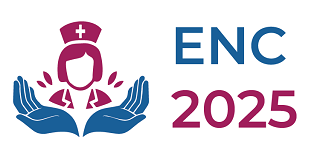2nd Euro
Nursing Congress
September 15-16, 2025 | Online
ENC 2025

University of Miami, Spain
Abstract:
The incorporation of dose-sparing features in syringe design represents a significant innovation in medical technology, offering a plethora of advantages that enhance the efficiency and effectiveness of healthcare delivery. Dose-sparing syringes are meticulously engineered to minimize the volume of medication that remains unused in the syringe after administration, ensuring that patients receive a full dose while reducing waste of precious medical resources. One of the primary advantages of dose-sparing syringes is the optimization of vaccine and medication utilization. In scenarios where the supply of vaccines or medications is limited, the ability to administer doses accurately and with minimal waste can significantly extend the reach of these critical resources, potentially saving more lives and treating more patients with the same amount of product. This is especially vital during public health emergencies when the demand for vaccines and medications surpasses the available supply. Furthermore, dose-sparing syringes contribute to cost savings for healthcare systems. By maximizing the use of each vial of medication or vaccine, healthcare providers can reduce the overall cost of medical treatments and vaccinations, making healthcare more affordable and accessible to a broader population. Additionally, the precision and efficiency of dose-sparing syringes enhance patient care by ensuring that individuals receive the intended dose of a medication or vaccine, thereby improving the efficacy of treatment and vaccination programs. This can lead to better health outcomes and increased confidence in public health initiatives. In conclusion, dose-sparing syringes offer significant advantages in terms of resource optimization, cost savings, and improved patient care.
Biography:
Carmen Josefa Sierra, a distinguished nurse scientist and Doctorate of Nursing Practice graduate from Rush University in Chicago, Illinois, stands as the clinical lead for Sol-Millennium, a leading global manufacturer of needles, syringes, and blood collection devices. With a profound commitment to enhancing patient care and healthcare worker safety, Carmen has contributed significantly to the field of infectious diseases through her publications in reputed journals. Currently, she is finalizing her dissertation, furthering her expertise in the study of disease patterns, causes, and effects in populations. Her work epitomizes the intersection of clinical leadership and impactful research.
